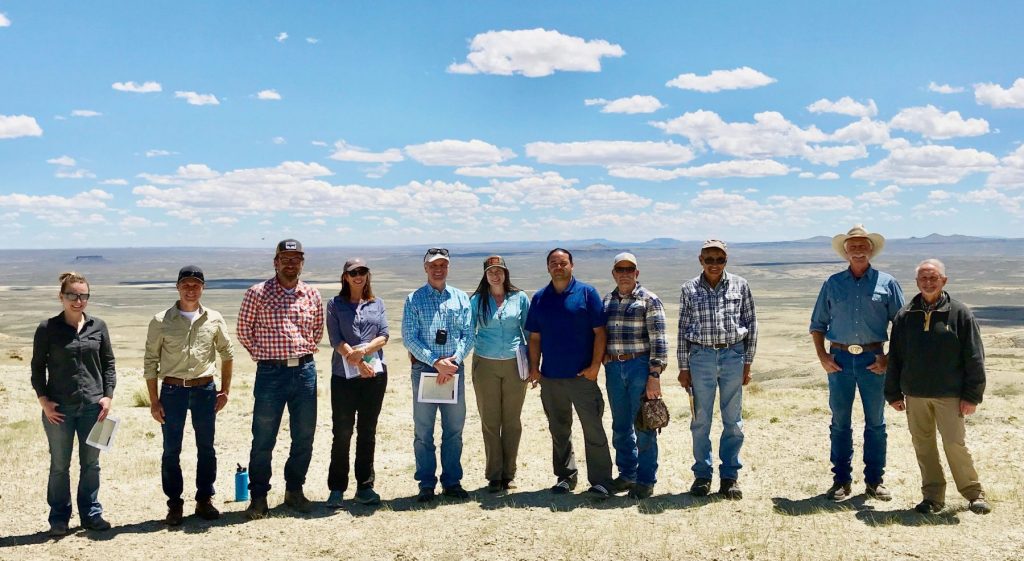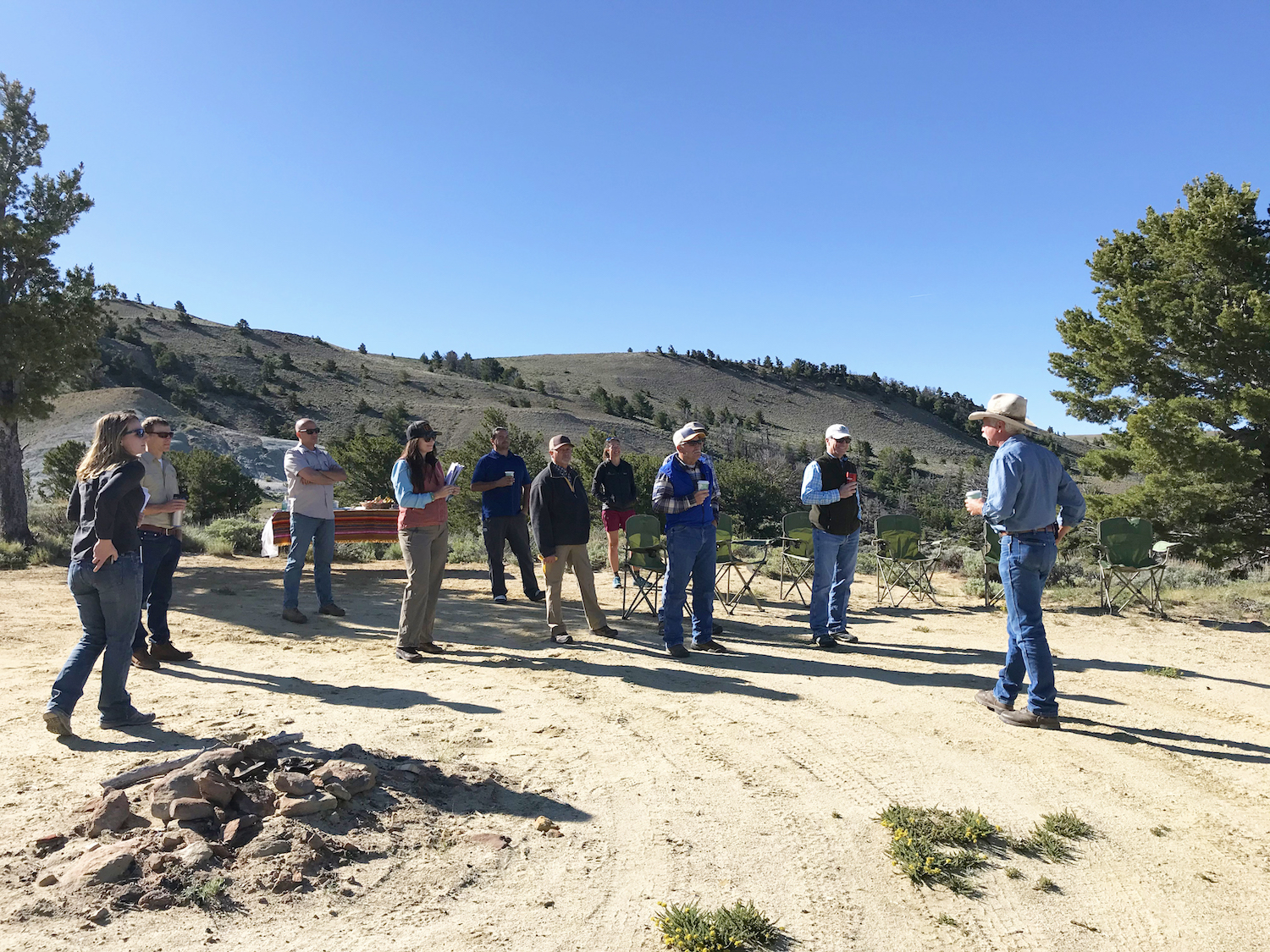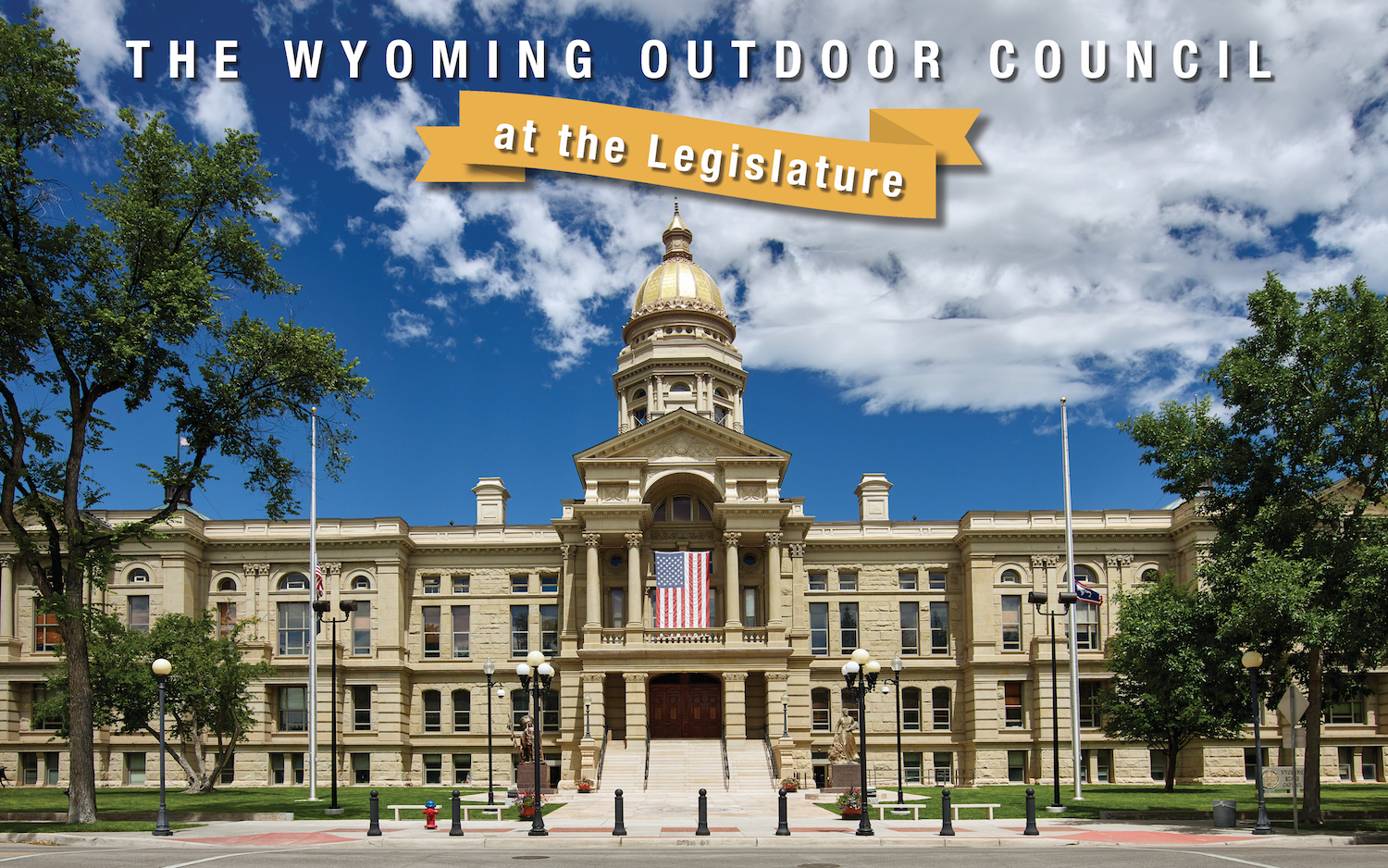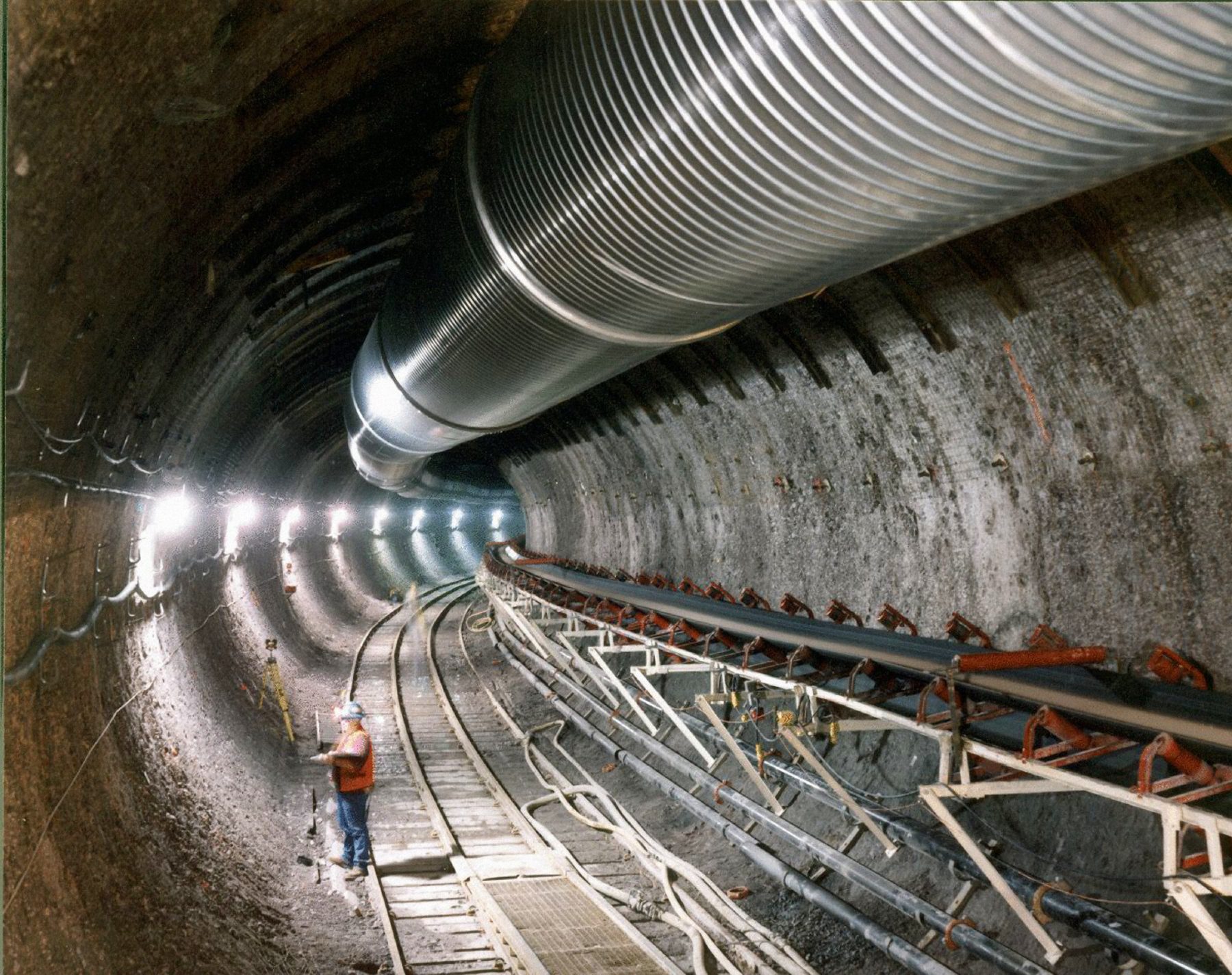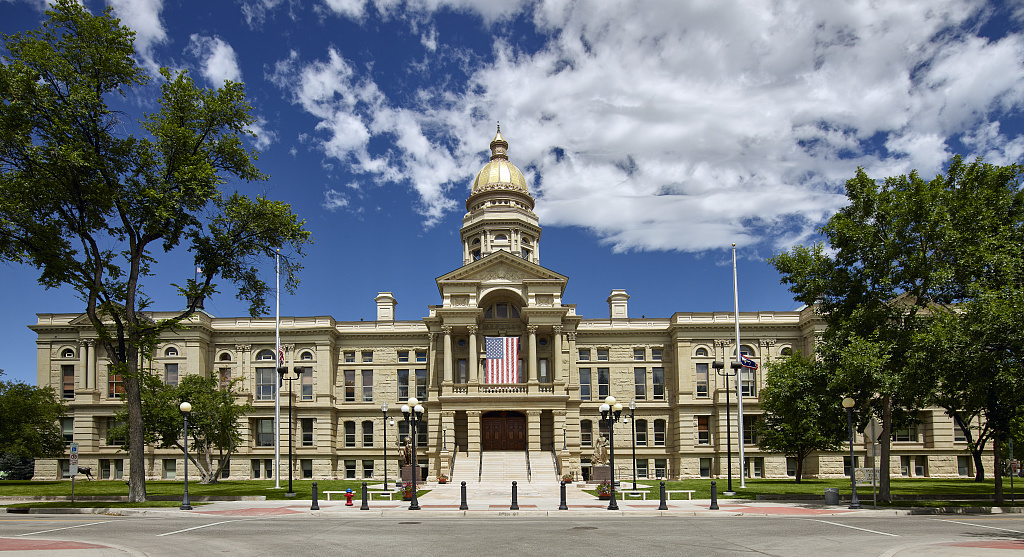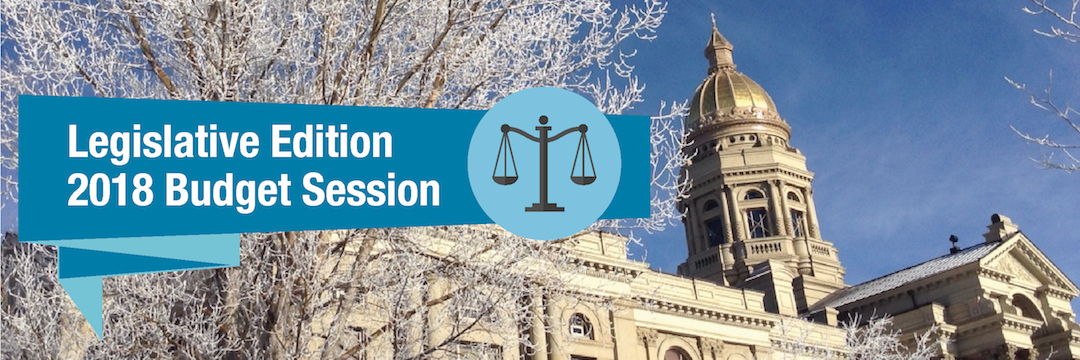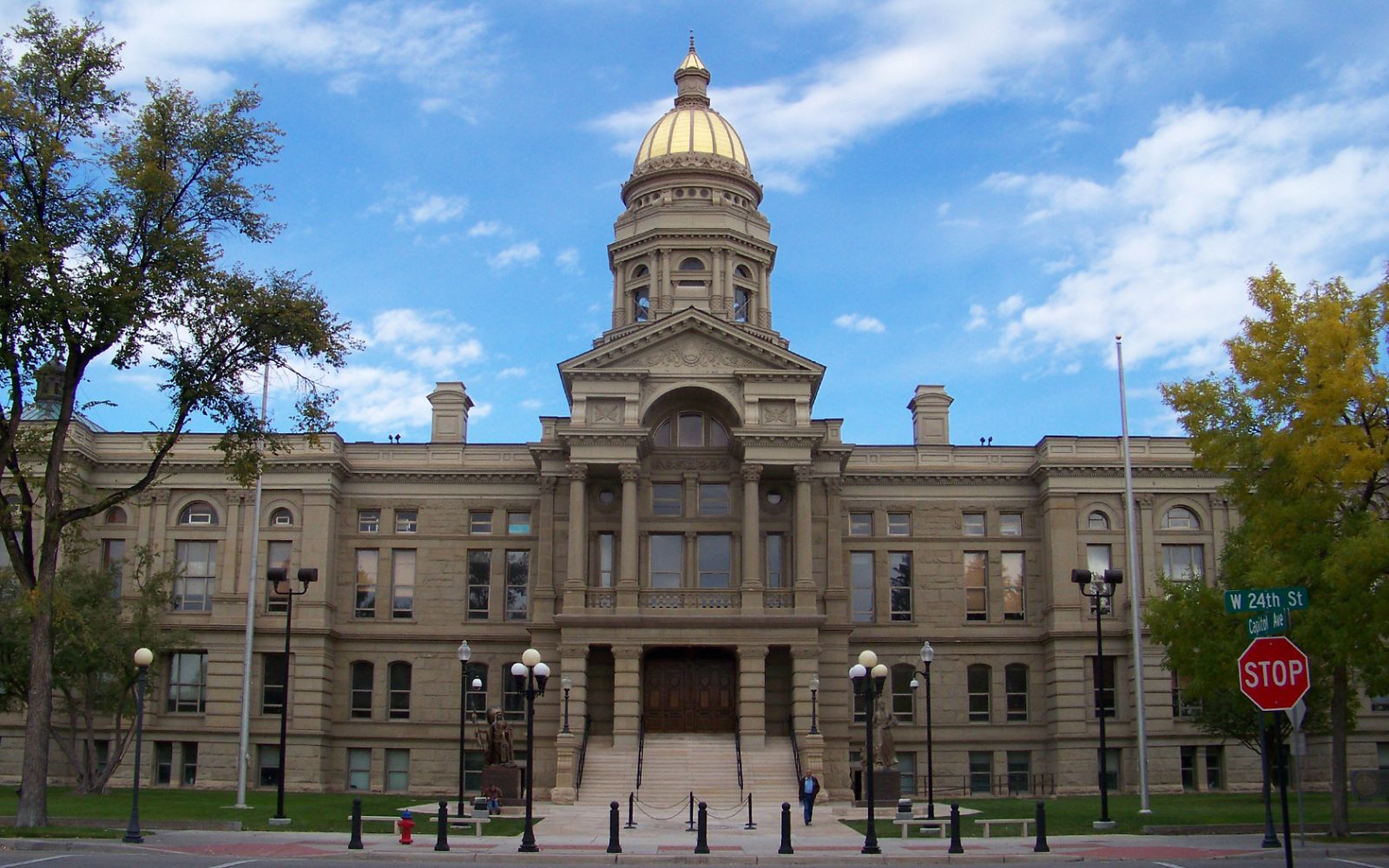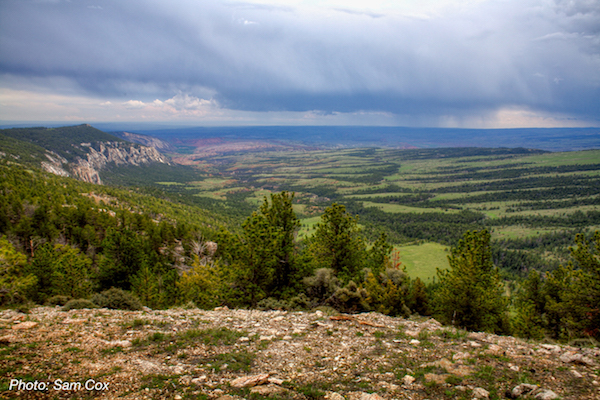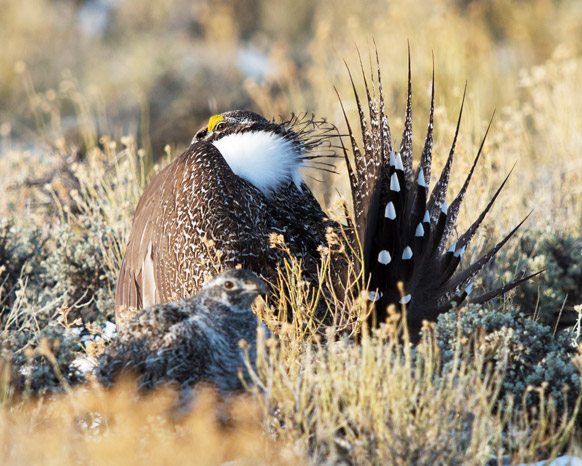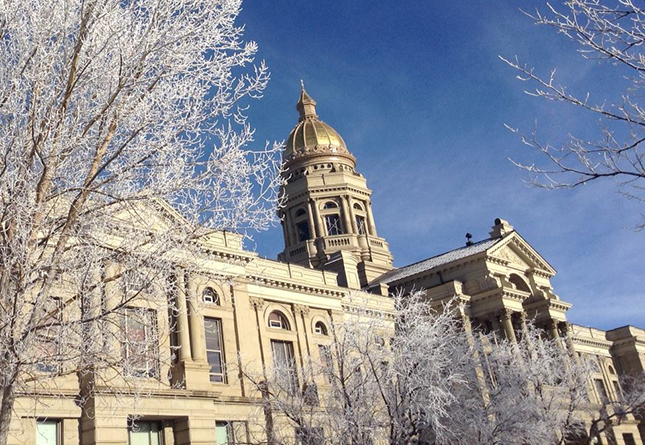Gov. Mark Gordon spent Thursday, June 11, visiting Wyoming’s iconic Northern Red Desert for a firsthand look at one of the state’s wildest landscapes. The tour was organized by the Wyoming Outdoor Council and our partners to familiarize the governor and his staff with some of the most beautiful and treasured corners of the desert as well as introduce him to citizens representing a variety of interests who value, work in and recreate on this important landscape. Many representatives of Citizens for the Red Desert, a grassroots group, also participated in the trip.
The Northern Red Desert contains nationally-significant cultural and ecological resources, including the greatest concentration of Bureau of Land Management wilderness study areas in Wyoming, crucial winter range and migration corridors for mule deer, pronghorn, and a rare desert elk herd, North America’s largest living sand dunes, historic trails including the Oregon and Pony Express National Historic Trails, and indigenous cultural sites including petroglyphs, buffalo jumps, and other respected places. It is a vast landscape that offers a range of potential for outdoor recreation and hunting, supports ranching, and is considered the largest unfenced area in the Lower 48.
The tour was designed to provide the governor an overview of these special values. Along the way, the governor visited sites such as Whitehorse Creek and the dramatic Honeycomb Buttes wilderness study areas; visited with local rancher Jim Hellyer and his family; heard about the Oregon Trail and westward expansion from Todd Guenther, a Central Wyoming College professor and historian; and met with Rick Lee, director of the Rock Springs Chamber of Commerce and Bobbi Wade, a local outfitter, to discuss outdoor recreational opportunities. Jason Baldes, an Eastern Shoshone tribal member and the tribal buffalo coordinator for the National Wildlife Federation accompanied the trip to highlight the history of indigenous use and current tribal values within this landscape. John Mionczynski, an ethnobotanist and expert on the desert provided additional background on the ecology, geology and history.
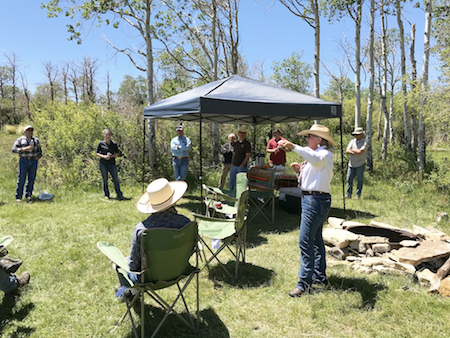
The wildlife values of this landscape were in constant view, and the connection of this Red Desert habitat to what’s known as the “Golden Triangle” to the north along the Wind River Front — so named for its wealth of big game and sage-grouse populations — was highlighted by wildlife experts on the trip. Lauren Heerschap, with WyoClimbers and a Wyoming Outdoor Council board member, also shared information about the value of this landscape as the recreational scenic gateway for national and international climbers accessing renowned climbs in the Wind River Range.
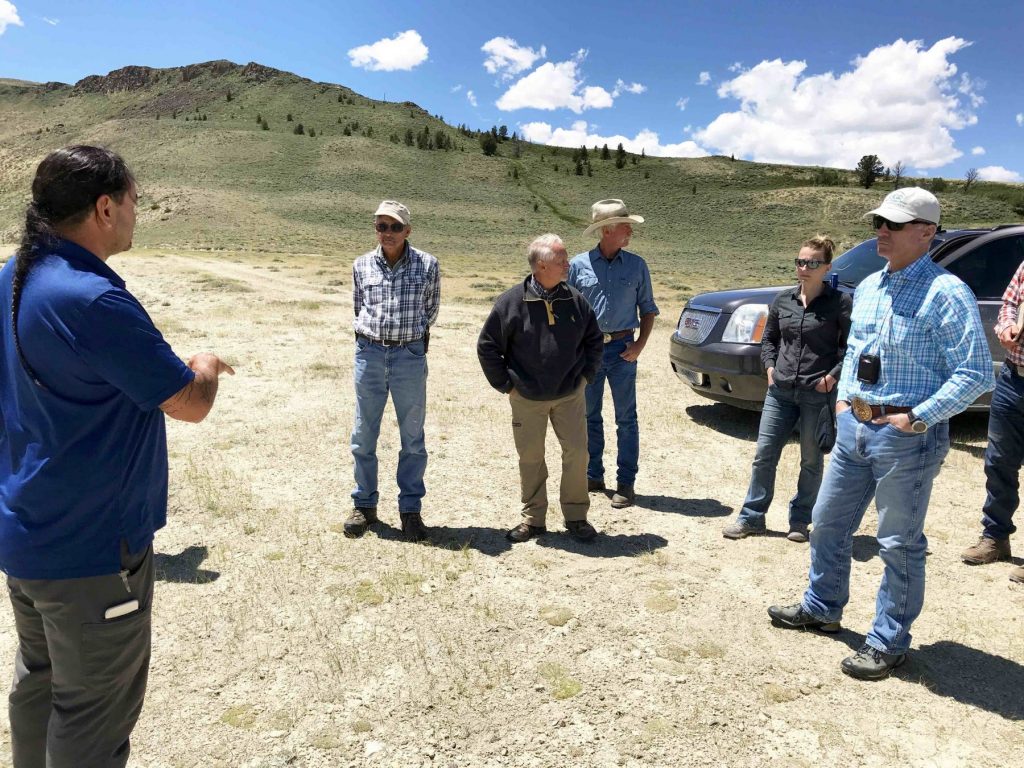
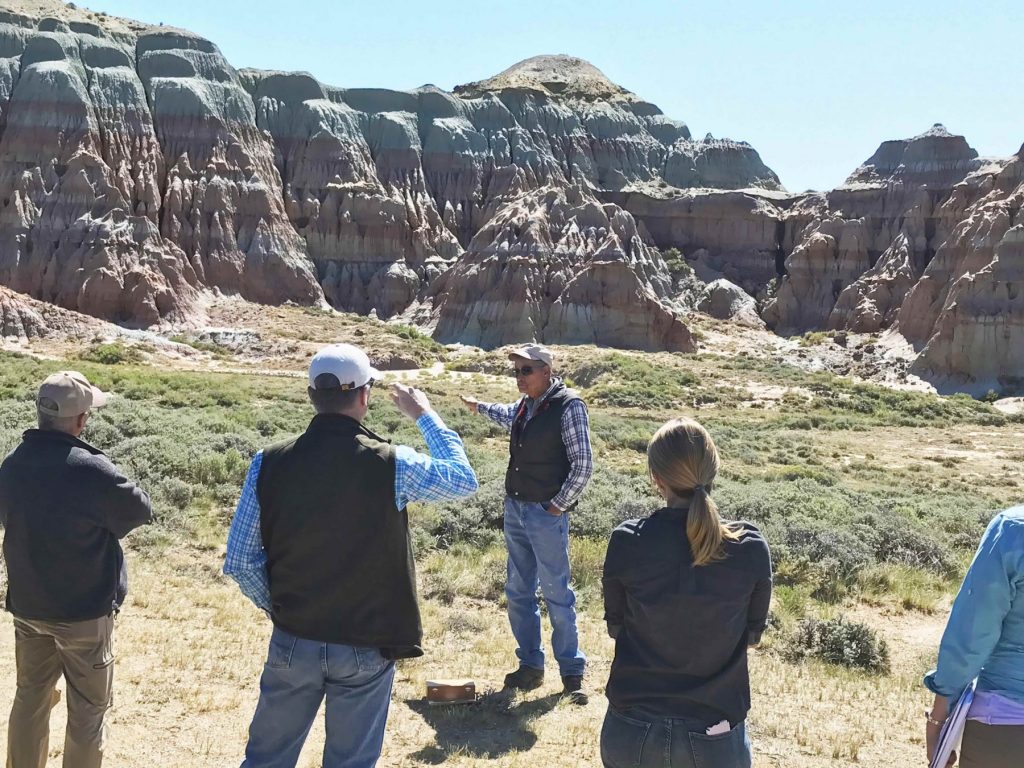
John Mionczynski discusses the Red Desert’s fascinating geological history in front of the Honeycomb Buttes.
The Outdoor Council is tremendously grateful for the governor’s time to take this trip, and we and others benefited from the questions and perspectives he and his natural resource and energy staff shared with us. Gov. Gordon engaged in thoughtful conversations throughout the tour, and was obviously seeking to understand this diverse landscape and the perspectives presented.
The Red Desert is largely comprised of public lands managed by the BLM. This agency revises its management directives about every 20 years through a public planning process resulting in a resource management plan. The Red Desert’s fate is currently under debate due to the ongoing revision of the BLM’s Rock Springs Resource Management Plan, which will determine how 3.6 million acres of public lands, including the Red Desert, will be managed over the coming decades. Recent plan revisions from elsewhere across the West have stripped designations that protect wildlife habitat, cultural sites, and more.
It is our hope that through the direct experience of this landscape, and his conversations with people who cherish it, Gov. Gordon will see that the Northern Red Desert is a national treasure worth protecting — a place beloved by a diversity of Wyomingites for its many values and uses and deserving of a BLM management plan that will ensure its special values remain for future generations.
